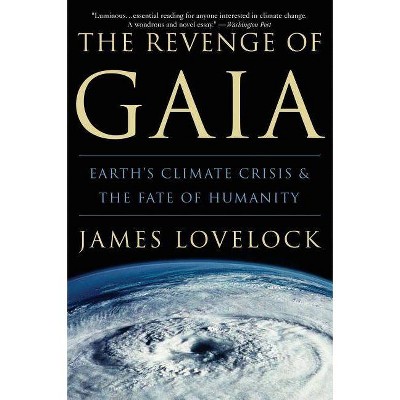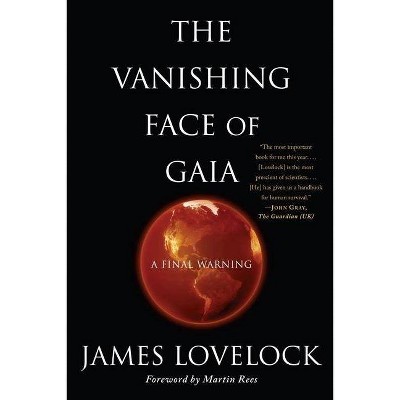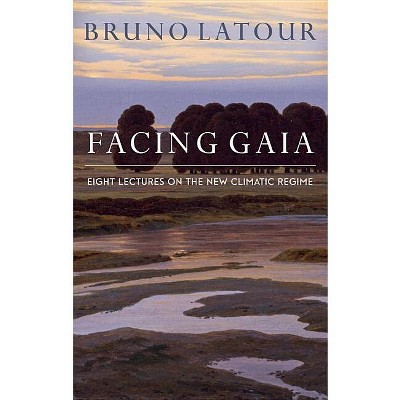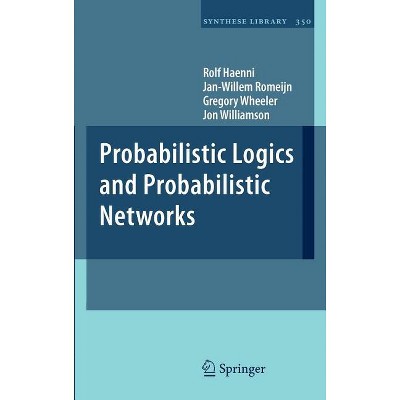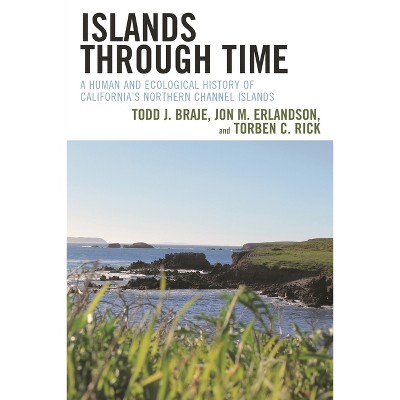Sponsored

Lovelock and Gaia - (Revolutions in Science) by Jon Turney (Hardcover)
In Stock
Sponsored
About this item
Highlights
- How is it possible that Earth's atmospheric temperature has remained perfectly suited to supporting life for billions of years?
- About the Author: Jon Turney, formerly a professor in the Department of Science and Technology Studies at University College London, is editorial director of Penguin Press, London, and the author of Frankenstein's Footsteps.
- 157 Pages
- Science, Philosophy & Social Aspects
- Series Name: Revolutions in Science
Description
About the Book
Naming his theory after the ancient Greek earth goddess, Lovelock's "Gaia hypothesis" argued that everything on the planet--air, water, soil, and organisms--somehow act together in a global, self-organizing system to maintain conditions suitable to sustaining and perpetuating life. Telling the story of this maverick pioneer, Lovelock and Gaia explains how Lovelock's remarkable hypothesis is gradually ushering in a scientific revolution.
Book Synopsis
How is it possible that Earth's atmospheric temperature has remained perfectly suited to supporting life for billions of years? Why do oxygen levels in the atmosphere remain relatively stable when only a minuscule increase would cause everything on Earth to spontaneously combust? Why are the oceans salty, but not salty enough to make them uninhabitable? In the 1960s, an English scientist names James Lovelock formulated a groundbreaking and highly controversial explanation: Earth is alive.
Naming his theory after the ancient Greek earth goddess, Lovelock's "Gaia hypothesis" argued that everything on the planet--air, water, soil, and living organisms--somehow act together in a global, self-organizing system to maintain conditions suitable to sustaining and perpetuating life. Lovelock speculated that the geosphere and biosphere were interdependent and that every part of the Earth system worked in symbiotic harmony with every other part. Once considered more science fiction than legitimate science, the Gaia hypothesis was met with indifference, and even hostility, when it was first revealed. The theory only started to gain widespread attention when emerging issues such as environmental degradation and global warming proved that a single species--humans--could radically upset the ecological and atmospheric balance of the planet. While Gaia attracted a quasi-religious following among environmentalists and New Age spiritualists, it was still largely viewed with skepticism by the scientific community. But over the past few decades, many of Lovelock's ideas have led to significant breakthroughs. In fact, the Gaia hypothesis has developed into a guiding principle for a vast range of discrete inquiries into how the Earth works, often referred to as "Earth system science" or "geophysiology." Telling the story of this maverick pioneer and his long struggle to gain respectability, Lovelock and Gaia explains how Lovelock's remarkable hypothesis is gradually ushering in a scientific revolution.Review Quotes
a detailed account of a novel theory and its maverick originator, contributing to the annals of environmental thought and the history of ideas.--Rebecca Maskel "Booklist"
A great weekend read, Lovelock & Gaia will educate readers on a topic that will be relevant for years to come.--Brenda Braaten "Science and Theology News"
Excellent...-- "Quarterly Review of Biology"
Turney's writing is beautifully clear and maintains an admirable objectivity.... The result is never less than absorbing.-- "New Scientist"
About the Author
Jon Turney, formerly a professor in the Department of Science and Technology Studies at University College London, is editorial director of Penguin Press, London, and the author of Frankenstein's Footsteps.





